My Dry Bar Comedy special was released last week. It's a project I'm incredibly proud of, one I poured my heart and humor into, and spent nearly a year preparing for (which you can read about in Reflecting on my Comedy Special Taping).
And by many accounts, it’s good! Take a peek for yourself:
And yet… I've hardly told anyone about it. Yes, I mentioned it in the PS of my email last week and I did tell Pretzel (my wife) and mom about it. But that’s about it (in fact Pretzel has shared it with more people than I have).
Why? Why haven’t I shared it more broadly? (That’s not a question for you, it’s one I’m asking literally myself as I type this.)
You could call it modesty, but that’s just a nice way of saying that I hate talking about myself. Okay, that’s only partially true. I love talking about myself on stage (the entire comedy special is about how I dated my way to meeting Pretzel). But I hate promoting what I’ve done.
And I know I’m not the only one. Maybe you’re the same way? It’s certainly true for many of my coaching clients. My fellow engineers, project managers, and tech people constantly push back when I tell them they need to talk about themselves or their work more.
They say things like, “why would the audience care about me?” or “but I wasn’t the only one that worked on the project,” or “can’t I just focus on actually doing the work?” And I totally get it.
That’s how I felt when I started at Procter & Gamble, where I worked as an engineer. I always believed that being good at what you do should be enough. After all, that’s how it typically works in school: you study hard, get good grades, have a high GPA, get called a nerd by your friends, and get an academic scholarship. Hard work = success.
But that’s not how it works in the corporate world. Whether you're working at a big company, small business, or building your own thing, you not only have to excel at what you do but also be proud enough to share it broadly. “If you build it, they will come,” is only true in the movie Field of Dreams, not real life.
I eventually learned at P&G how to market myself without feeling smarmy about it. I still haven’t quite figured it out for Humor That Works. So what did I do before and can it apply now? Let’s see.
Note: I really thought this model was considered proprietary which is why I haven’t talked much about it before, but I did a quick google search and other people have talked about it (and even written a book), so for any P&G lawyers, I got it from this post :).
Okay, so what is P&G’s method for self-promotion that isn’t awful? It’s called the PIE model: Performance, Image, and Exposure.
Performance
First and foremost, you still have to be good at what you do. You don’t want to be someone who is all talk and no walk.
Based on the feedback I get, I seem to have some solid performance:
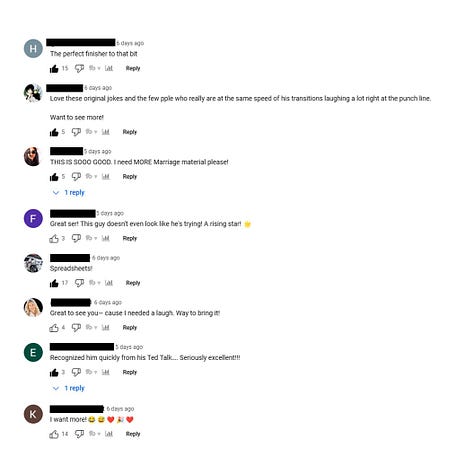
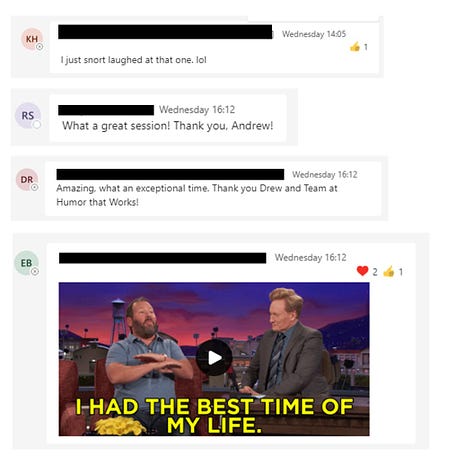
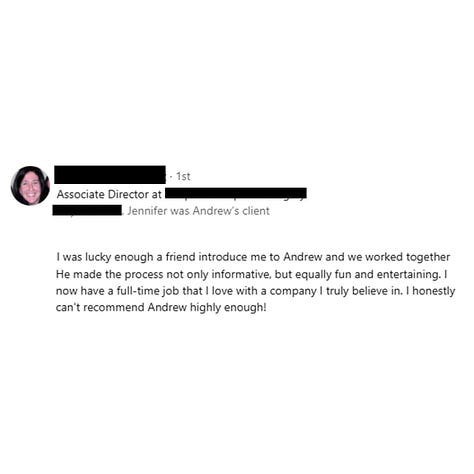
(And yes, we still do virtual events.)
Most people have this one down. By virtue of being on this newsletter, I’m going to assume you’re in a similar spot, that you’re good at the nuts and bolts of your job. Which is a great start, because performance is the biggest piece of the pie, but it’s not the only piece.
Image
Next is your image. This is basically your reputation, how you’re perceived by others. You can’t control your image, but you can try to craft it, mold it, and at least nudge it in the right direction.
Your image is primarily driven by your behaviors: how you dress, how you express, and how you impress.
How you dress - Do you present yourself in a professional way, both in terms of attire but also in terms of attitude? Or are you too cool for school (or something other than a hoodie)?
How you express - Are you eloquent, prepared, focused when you present yourself? Or do you ramble, stumble, or undersell your own ideas or contributions?
How you impress - What makes you stand out from everyone else? Do you have an incredible attention to detail or a positive sense of humor (yes, being fun to be around is a great way to improve your image)? Or are you always annoyed or difficult to work with?
All of these things can affect your image. Personally, I try to create a brand of being a “cool-ish nerd.” I’m someone that is definitely a nerd (and will get ish done), but also fun to work with.
Exposure
The last one is the hardest one for us introverts because it means putting yourself out there. Not just in terms of talking about yourself, but also in terms of intentionally seeking out opportunities to introduce your work to more people.
That means speaking up in meetings, volunteering to present, posting to *gasp* LinkedIn about something you’ve achieved.
Believe it or not, this is a constant struggle for me. And some of you might be thinking, “That’s a lie! You post on LinkedIn, YouTube, Instagram, and Facebook… every single day!”
Can I tell you a secret? My team does that. They either take clips of my speaking or stand-up, or about once a month, I record a bunch of videos that they edit together. I even change shirts so it’s not as obvious that it’s all done at once. It’s a bit embarrassing really.
And other speakers and business coaches have told me I should be doing more. I should be posting to Instagram stories every time I land in a new city for an event. I should be posting testimonials from coaching clients to show the results you get from working with me. I should, I don’t know, actually promote the things that we offer every and now then.
Side note: we were reviewing our KPIs earlier this month and my COO noticed an uptick in book sales. She asked, “why the increase?” and I said, “I’m not sure, I did link to the book in one of my newsletters, could that be it?” Her response, “Ya think?”
You Have to Get Over Yourself
In today’s increasingly competitive, ever-distracted world, being too modest will hurt you. Poor self-marketing can hinder your career progression, no matter how skilled or talented you are.
Marketing yourself isn’t about being boastful or egotistical—it’s about making sure the right people know what you’re capable of. It's about giving your work the spotlight it deserves so that it can open the doors you’ve worked hard to earn.
So, here's my challenge to you (and myself): Share something you’re proud of this week. It doesn’t have to be perfect, and it doesn’t have to be everywhere, but it has to be somewhere. Whether it’s a quick LinkedIn post, a chat with your manager, or just telling a friend about something you’ve accomplished, start practicing self-marketing.
At a minimum, feel free to start with me. Leave a comment below or hit reply. For me, I’m thrilled to share that my Dry Bar Comedy special is out now, and I’d love for you to check it out.
Your career deserves a voice, and you’re the only one who’s going to speak for it. Don’t let modesty hold you back.
(an)drew
PS. If you want to watch the full Dry Bar special, you can sign up on Dry Bar Comedy+. There is a 7-day trial, which means if you signed up last week, be sure to cancel if you don’t want to get charged :).
Whenever you’re ready, here are 3 ways I can help you:
One-on-One Coaching: Join the hundreds of professionals I’ve coached to learn how to use humor as a competitive advantage to stand out, make an impact, and advance your career.
Team Workshops: Book one of our workshops to get interactive training on topics ranging from managing stress, improving sales, or enhancing leadership, for teams as small as 4 people to as large as 10,000.
The Whole Humorist Course: Join 500+ students to unlock your skill of humor to be more productive, less stressed, and happier at work.


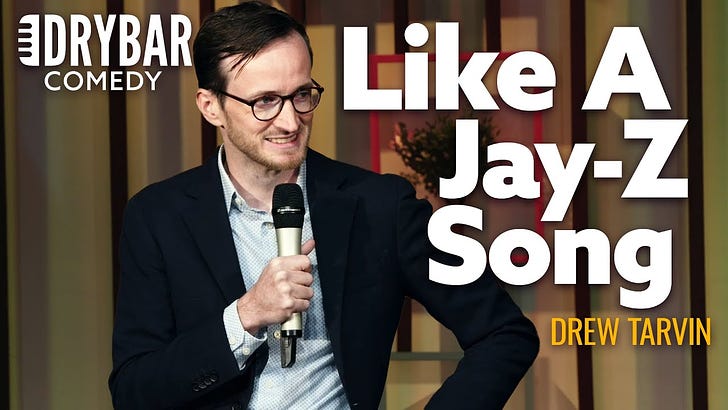


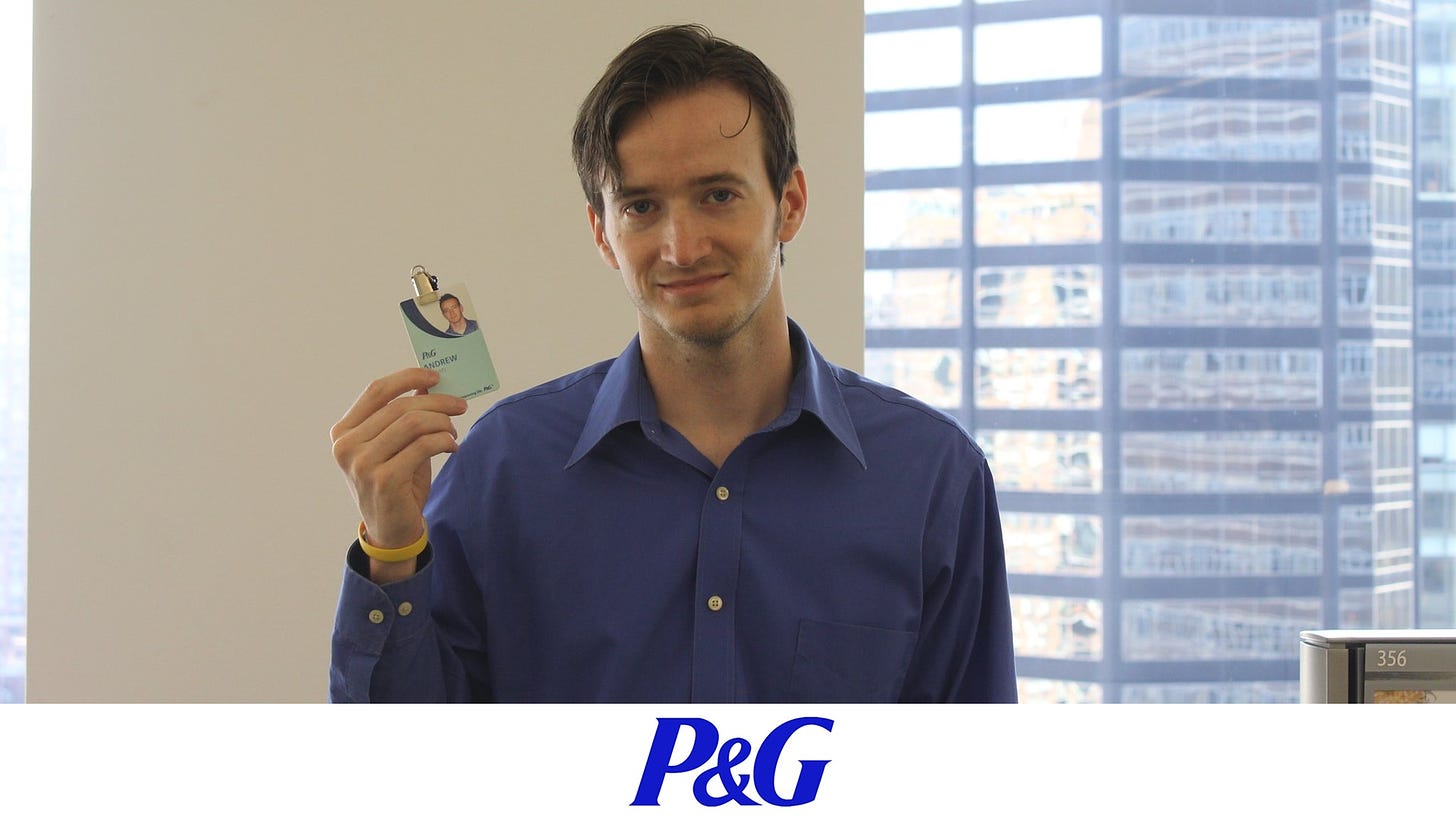
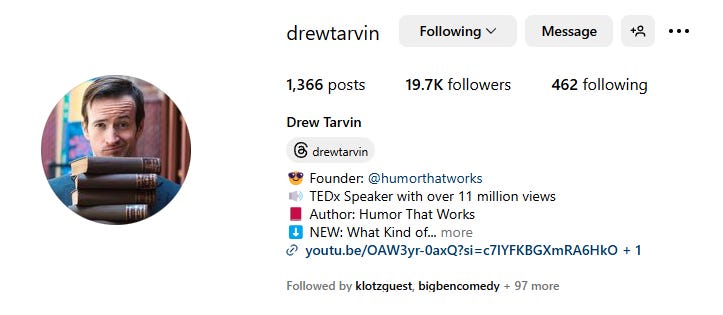
Drew - your message is so important and so unique that it must be shared with the world. Lots of people are talking about empathy, listening, and other soft skills. I can't think of another person who is sharing the message of humor as a leadership skill. The world needs your message. Now more than ever.